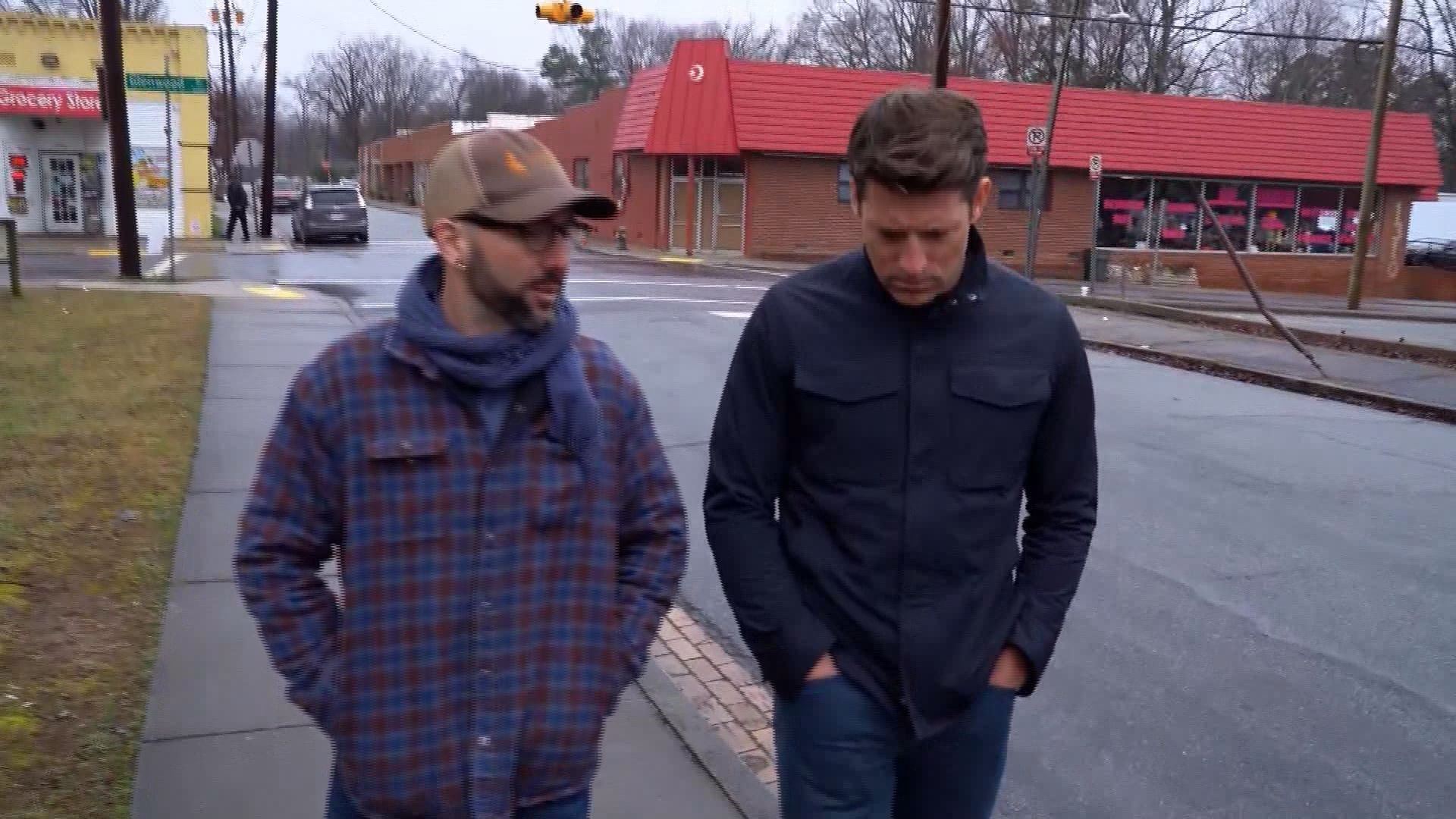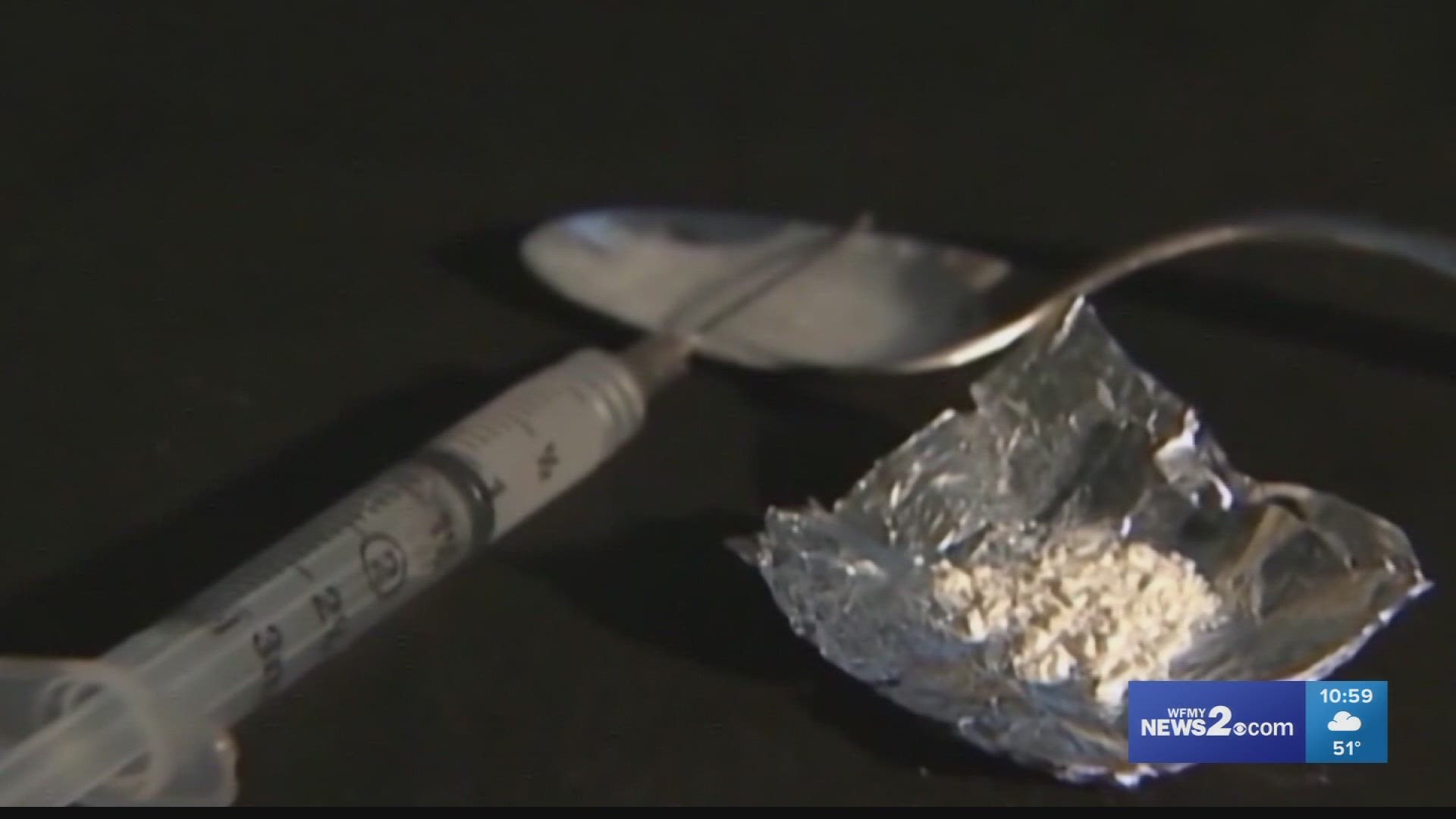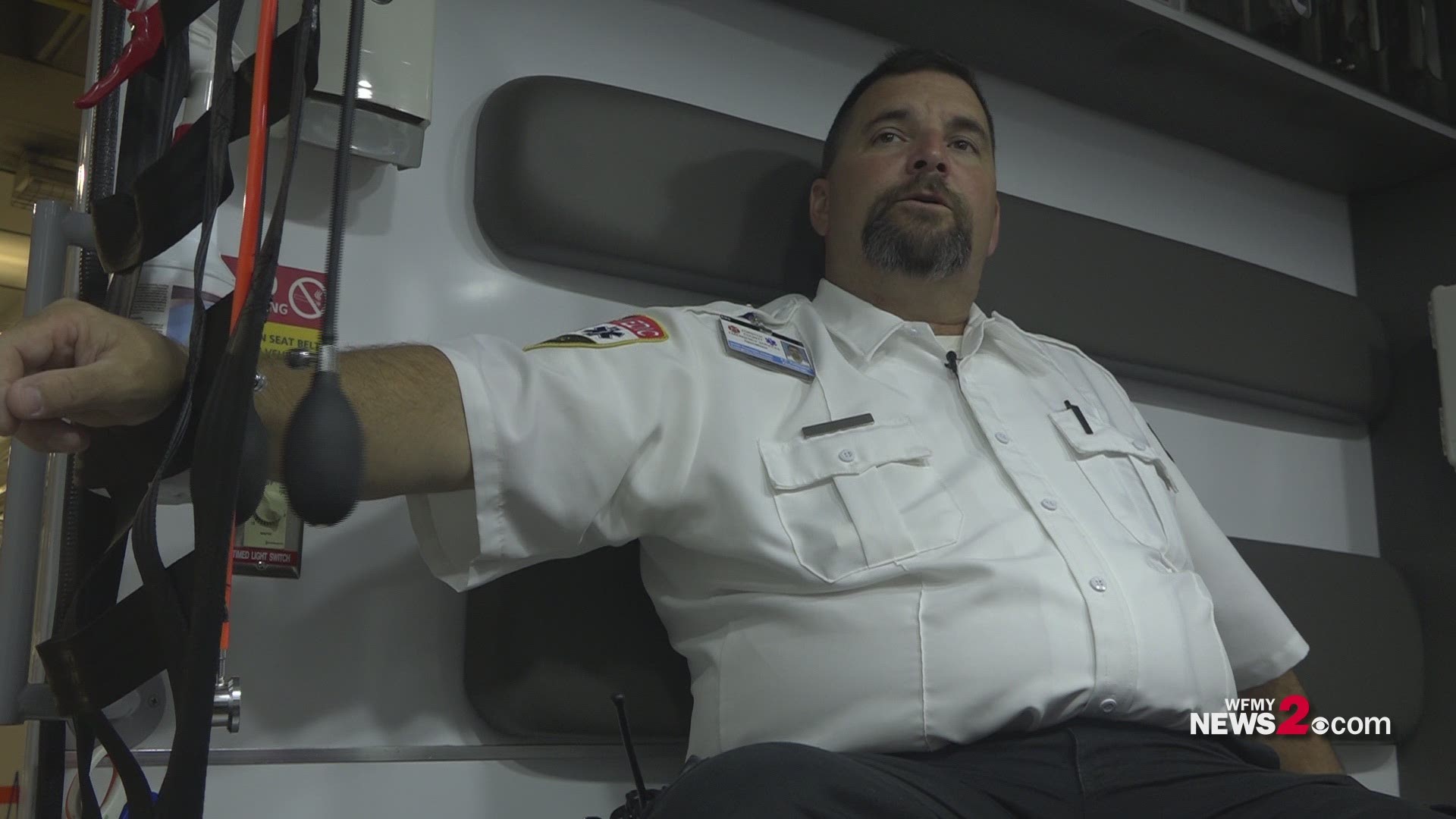GREENSBORO, N.C. — Fatal drug overdoses peaked last year, according to preliminary data from the Centers for Disease Control and Prevention. The number of deaths from overdoses involving fentanyl was more than 11 times higher in 2016 than in 2011. But fatalities are only part of the ongoing crisis.
CBS News met a young man named Jacob who says he has had fentanyl in his system every day for the past 2.5 years. He's so addicted that he lives, works and even drives on it.
"All the time I've been using, I've only stopped for more than a week twice," he said. "I come from a good family. I work 40 to 50 hours a week."
Jacob, who started using at 15 after he was prescribed Hydrocodone for a bad cough, asked to remain anonymous. But he's far from alone.
Opioid addiction afflicts more than 2 million Americans. For Jacob, that means carrying a dose at all times, and injecting every four or five hours. He doesn't do it to get high, but to avoid withdrawal.
RELATED: EXCLUSIVE | A Night Near Death: 12 Hours In An Ambulance Tracking Overdoses With Paramedics
"After inject, it takes about 10 seconds and then I feel better," he said.
When his supply runs out, he simply logs online and order more, using an Amazon-like shopping service on the dark web.
"You got heroin. You got fentanyl. You got your prescription opioids," Jacob said.
But federal law enforcement agencies have been cracking down.
"We've taken the two biggest dark web drug markets and completely obliterated them," said Rusty Payne, a spokesman for the Drug Enforcement Agency.
The feds might be able to stop the supply, but Payne said he worries people like Jacob are "going to be dead next week."
Jon Zibbell, an opioid expert at RTI International, has a different approach.
"For the last 40 years, we haven't been able to stem the flow of illicit drugs into the country. Drugs are cheaper, stronger, easier to get than ever before," Zibbell said.
CBS News met him at a needle exchange in Greensboro, North Carolina. He would like to help users replace powerful illegal opioids like fentanyl with a milder prescription opioid like Buprenorphine, designed to help control the cravings that drive so much demand for opioids in the first place. The goal is to also stop people from buying drugs through an online black market or on the street. But Zibbell acknowledges that it doesn't stop dependency.
"You know, the thing we know about dependency, I'm physically dependent right now on caffeine," Zibbell said. "But I don't have to go out in the street and steal and rob for it."
The approach holds the promise of a normal life for people like Jacob — just maybe not be a drug-free one. Zibbel said addicts like him could be on a replacement opioid forever.
"I was a victim of the pharmaceutical companies," Jacob said. "But I'm not going to let myself become an overdose statistic."
DRUG ADDICTION HOTLINES
SAMHSA’s National Helpline
The SAMHSA’s National Helpline is free, confidential, 24/7, available 365 days a year for treatment referral and information services.
Call 1-800-662-HELP (4357) or visit the online treatment locators.
National Council On Alcoholism And Drug Dependence
24-hour hotline 1-800-622-2255
More Details: National Council on Alcoholism and Drug Dependence
211 Drug Recovery Addiction Hotline
If you or someone you know has symptoms of drug addiction dial 2-1-1 from any cell phone or landline for help. This is a confidential call and you will be connected with an organization that specializes in recovery.
Another number to call 866-401-6342 is a toll-free number that is available should your service provider be unable to connect to 2-1-1.
More Details: United Way Substance Abuse Addiction Services
Triad Drug Recovery Addiction Services
Call the Alcohol and Drug Services 1-855-801-9817
SIGNS OF AN OVERDOSE
Do You Know The Signs Of An Overdose?
- Snoring or Gurgling
- Floppy arms or legs
- Blue/gray lips or fingertips
- Cannot be woken up
- Shallow, or no breathing
- No response to stimuli
Information provided by IOAD.
WHEN TO CALL AN AMBULANCE
People are often reluctant to call an ambulance for fear of police involvement or concern about the cost of a call-out. The police will only attend if there is a fatality or if their presence is requested, for example, if the ambulance crew feel threatened. This is an issue worldwide.
In addition to unconsciousness, call for emergency help when someone is:
- Having a seizure
- Experiencing severe headache
- Experiencing chest pain
- Experiencing breathing difficulties
- Extremely paranoid, agitated and/or confused
- It is not necessary for someone to have all of these signs or symptoms for them to be overdosing. Exhibiting only a few could still mean they are in trouble and need emergency help.



